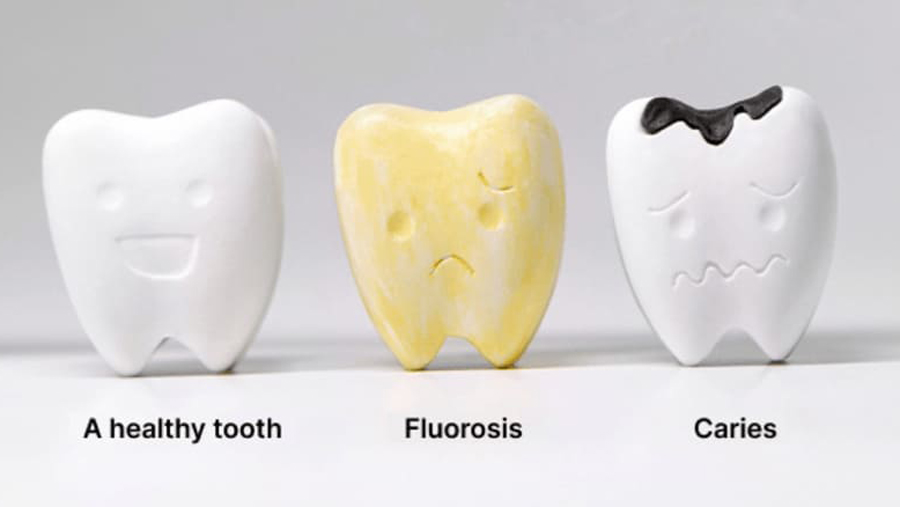Benefits of Potassium – It is one of the minerals that are contained in some kinds of fruits, mineral water, and other types of fruits. Potassium is a chemical element that has the symbol “K” to the element number 19 on the periodic table of the chemical. Potassium is also commonly known as potassium.
The mineral has many benefits for our bodies. So, what are the benefits of potassium for us? Below are some of the significant benefits of potassium for health.

13 Health Benefits of Potassium
1. Prevent Stroke
Stroke is a disease that can cause many health problems, such as paralysis, it can even cause death. Therefore, the optimal intake of potassium, you can consume foods that contain potassium.
2. Prevent low blood sugar
Potassium also has the excellent function when experiencing a condition where your blood sugar is too small. Blood sugar that is too low can cause you do not have the energy to move because it is by consuming foods that contain potassium, your blood sugar will rise, and you can walk frequently.
3. Prevent Muscle Disorders
Furthermore, the potassium health benefits for body is to prevent the emergence of muscle disorders. This muscle disorders can include muscle cramps; it is extremely painful. To reduce the risk of muscle breakdown is, then of course, your potassium intake per day should be fulfilled properly.
4. Prevent Cramps
As mentioned earlier, potassium also has excellent benefits to help prevent cramping. When the cramps, the body will feel very stiff and difficult to move because it hurt. Therefore, always fill your potassium intake so that you avoid cramping disorders.
5. Maintain in brain function
Potassium is also beneficial to help maintain brain function. With preservation of brain work properly, then sure it will contribute to improving the thinking process and your cognitive processes, and can help improve concentration and focus, which will benefit you when doing the activity.
6. Normalize Blood Pressure
Have you a symptoms of low blood pressure or high blood too? If so, try to consume foods that contain potassium. Potassium has excellent benefits to help normalize your blood pressure.
7. Overcome Anxiety and Stress
Stress and nervous is one thing that is caused by psychological symptoms. However, you can cope with the symptoms of stress and also agitated by consuming foods that contain high potassium benefits. It can help address and alleviate stress and anxiety appear to yourself.
8. Muscle strength
Potassium benefits also help to improve your muscle strength. For athletes or those of you who work with the muscles, the intake of potassium is one of the most important things, besides the intake of protein for your body.
9. Help Metabolism
The health benefits of potassium for body also can help increase your body metabolism. Can help your body’s metabolism to burn fat and also assist you in doing the activity. If your metabolism is reduced, then you can feel the symptoms of weakness and dizziness.
10. Preventing heart problems and kidney
Potassium is also magnificent benefits for the health of the kidneys and heart health. It is proven that potassium can prevent strain on the heart and kidneys. However, still the pattern of life and a healthy diet and nutritious should be applied so that the health of the kidneys and the heart becomes more optimal.
11. Maintain the water balance
Potassium may also help to maintain balance and also the water content in our body. Our bodies are made up of a lot of water; and then the balance must be retained so as not to become dehydrated, which can be bad for our health.
12. As Electrolytes
Potassium also has a function and excellent benefits as liquid electrolytes in our bodies, so we need every day.
13. Optimizing nervous system
Other health benefits of potassium is helping to optimize the functioning of our nervous system. With an optimal intake of potassium, the nervous system in our body will be better and more optimal, which can improve our response to many things.
Here are some types of foods that have a high potassium content and is also beneficial for your body:
Avocado, banana, mineral water, Dates, Passion Fruit, sugar apple, pear, papaya, mango Kiwi, Potato, Bamboo shoots, beans, taro, yam, Beans, Beef Products, Milk, Eggs.
Potassium Deficiency
Potassium deficiency can have an adverse effect on health, if a person consumes foods with lower potassium content from day to day. He can develop a potassium deficiency which results in poor health. Why can someone experience a potassium deficiency?
Causes of potassium deficiency?
Potassium intake that is less than usual will cause potassium deficiency, this can lead to health complications. Among the problems that occur are high blood pressure, and the risk of developing kidney stones.
Not only low food intake, there are several other factors that cause potassium deficiency, among the causes are:
- Use of diuretics
- Diarrhea
- Vomit
- Excessive use of laxatives
- Lots of sweat
- Pica (eating non-nutritive substances, like clay)
- Dialysis, a medical procedure to circulate blood when the kidneys cannot.
Who is at risk for calcium deficiency?
Some people who are at risk for calcium deficiency are:
- Inflammatory bowel sufferers
- Those who use diuretics and laxatives
- Pica sufferers
How to know if you are deficient in potassium?
most people do not know that they are experiencing a potassium deficiency, but if the potassium deficiency is at a severe level, then a person can experience hypokalemia, hypokalemia experiences several symptoms that can be marked, such as:
- Fatigue
- Constipation
- Muscle weakness
- Malaise (feeling unwell overall)
More serious hypokalemia can cause things like:
- Polyuria (excessive urination)
- Glucose intolerance
- Encephalopathy (disease affecting brain function) in people with kidney disease
- Poor respiration
- Muscular paralysis
- Cardiac arrhythmias (irregular heartbeat)
Acute hypokalemia can be heart threatening, this is due to its effects on the heart and respiration. Severe cases do not occur only due to potassium deficiency, but can be other things. If you experience any of the above symptoms, you should immediately evaluate your health.
Side Effects of Potassium?
Medical experts sometimes recommend that you consume potassium to reduce the risk of some health conditions such as kidney stones. However, in addition to side effects, there are a number of side effects of potassium that must be aware of.
If you increase your intake of fruits and vegetables, you can increase your intake of fiber and potassium. Increasing fiber is important to do slowly, the point is to prevent gas and flatulence. In addition, you also have to pay attention to adequate fluid intake. If you eat a lot of fiber but neglect to dehydrate your body, this can increase your risk of constipation.
You also like:
- Calories In A Navel Orange, Carbohydrate, Vitamin C, Potassium
- How to Get Rid of Acid Reflux Using Baking Soda
- 31 Top Tomato Benefits, Nutrition Facts and Uses
Common Side Effects
Some of the side effects of potassium supplements are:
- Diarrhea
- Nauseous
- Vomit
- Discomfort in the stomach
Severe Side Effects

Potassium supplements sometimes also cause dangerous side effects, especially if a person takes potassium or potassium supplements in large quantities. Among the severe side effects of potassium supplements are:
- Distended stomach, stomach ache,
- Confusion
- Pale, and the skin feels cold
- Black poop
- Tingling hands, numbness, feet and lips.
- Unexplained anxiety
- Severe fatigue
- Feeling weak or heavy in the legs
If you experience health problems as above or severe symptoms due to taking potassium supplements, then immediately contact health services.
Precautions
Some people with certain health conditions pose a severe risk of taking potassium supplements. This includes individuals with abnormal kidney problems, those taking ACE inhibitors, which are usually used to treat high blood pressure. Below is a complete list of possible drug interactions when taking potassium supplements.
Dosage of Potassium Supplement
To determine the dose of potassium supplements, you should discuss it with a health care provider. However, as quoted from verywellhealth, where The National Academies of Sciences, Engineering, and Medicine (NASEM) recommends adequate intake of potassium supplements as follows:
- 400 mg (infants through 6 months)
- 860 mg/day (infants 7-12 months)
- 2,000 mg/day (1-3 years)
- 2,300 mg/day (4-8 years)
- 2,500 mg/day (lazy 9-13 years)
- 2,300 mg/day (female 9-13 years)
- 3,000 mg/day (lazy 14-18 years)
- 2,300 mg/day (female 14-18 years)
- 3,400 mg/day (lazy 19+ years)
- 2,600 mg/day (female 19+ years)
- 2,600 (under 18) 2,900 (18+ years) during pregnancy
- 2,500 (under 18) 2,800 (18+ years) during lactation
Interactions
Some drugs can interact if taken together with potassium supplements. Among the drugs that can cause interactions are:
- ACE inhibitors
- Angiotensin receptor blockers (ARBs)
- Potassium-sparing diuretics, such as Midamor (amiloride) and Aldactone (spironolactone)
- Loop diuretics, such as Lasix (furosemide) and Bumex (bumetanide)
- Thiazide diuretics, such as Diuril (chlorothiazide) and Zaroxolyn (metolazone)
These medications can affect calcium in a number of ways. So the experts when giving potassium supplements to someone, he first monitors how much potassium levels in a person’s body (patient).
How Much Potassium Per Day
Potassium is a substance that helps strengthen bones, maintain good nerve health so that the nervous system continues to work properly. So, we should also keep the consumption of foods that contain potassium. But many questions “how much potassium per day”. An American study showed that very few Americans consume potassium according to the daily recommendations. Less than 2 percent of Americans meet their daily needs for potassium.
Currently the daily requirement of potassium is 4700 mg. Among the benefits of potassium is to strengthen bones, maintain nerve function. You can get appropriate amounts of potassium through potassium-rich foods and supplements.
Recommended Daily Allowances
Subsequent studies found that the daily amount of potassium was different from before. The National Institute of Health recommends that adults consume 4700 mg of potassium daily. While breastfeeding women need more potassium which is 5100 mg every day to get good health. So, some of the potassium consumed by pregnant women will be used for the development of the fetus.
While the need for potassium for infants and children aged 13 years is between 400 to 3800 mg, depending on age and weight. To meet the recommended daily allowance a person should consume more potassium-rich foods or take potassium supplements. But before taking supplements, you should consult a nutritionist.
Potassium Food Sources
To be able to meet or meet the body’s needs for potassium, of course potassium-rich foods must be consumed. For that, we release several types of important sources of potassium to meet your needs. Among the best sources of potassium are potatoes, grapefruit, limes, dates, winter squash, spinach, tomato products such as sauces, juices, pasta, and canned tomatoes. We often hear that bananas are also rich in potassium, but this is only half of the potassium in potatoes. A medium-sized roasted potato can give you as much as 926 mg of potassium. This is sufficient for about 20% of the daily recommended value.
While spinach, in one cup (ripe spinach) contains 420 mg of potassium, and 6 ounces of orange juice provides about 372 mg of potassium. Well, from here we know that the most potassium food is potatoes. So, you can grab a casual potato snack or include it in cooked vegetables.
Potassium Deficiency
What happens if you are deficient in potassium. Potassium deficiency can present serious problems in people with impaired absorption of nutrients such as Crohn’s disease, kidney disease, heart failure, dietary disorders such as bulimia or anorexia, as well as diseases that cause diarrhea.
Medically, potassium deficiency is called hypokalemia, the signs are bloating, muscle weakness, abdominal pain, fatigue, cramps and constipation. Hypokalemia is a serious disease and if left untreated can lead to paralysis and cardiac arrhythmias which can be fatal.
Benefits of Potassium Citrate
Potassium is an essential mineral and functions as an electrolyte that regulates fluids in the body. While potassium citrate is potassium from citric acid, it is in the form of a crystalline powder with a slightly salty taste. Potassium citrate is associated with the nervous system, muscle control, and blood pressure. Thus, the benefits of potassium citrate are good for lowering blood pressure, reduce the risk of kidney stones, and have benefits for bone health and reduce the risk of stroke.
1. Lowers Blood Pressure
The American Heart Association states that potassium plays a role in controlling blood pressure. It works with sodium to control body fluids and fluid balance, providing a protective effect against high blood pressure.
A study published in “Family Health Guides” states that potassium citrate has the same effect as potassium chloride. In the study involved 14 people with stage 1 hypertension. In the study, they gave potassium citrate to 7 people and gave potassium chloride to 7 people. The results of the study found that they were equally beneficial with consuming potassium chloride and potassium citrate.
Experts say that the increase in potassium does not need to be high immediately, but can be gradual to be safe and effective.
2. Prevent kidney stones
One of the health benefits of potassium citrate is preventing kidney stones. Potassium citrate that is used to break down some potassium citrate. Potassium citrate is more alkaline, so it neutralizes some of the acids in the urine. This will reduce the formation of crystals in the kidneys.
In a study mentioned that the benefits of potassium citrate is to reduce the formation of calcium excretion and this can cause calcium balance. In turn this can reduce the risk of kidney stones.
3. Stroke
Benefits of potassium citrate for stroke. The biggest cause of stroke is high blood pressure. While the health benefit of potassium citrate is that it reduces the risk of high blood pressure, it can reduce strokes by eliminating the possibility of “stroke causes.”
4. Osteoporosis
Osteoporosis is bone weakness resulting from inadequate calcium intake or because the body does not absorb calcium. Meanwhile, potassium citrate can increase calcium retention by reducing calcium excretion. A study published in the American Journal of Clinical Nutrition, January 2000 found a direct relationship between magnesium and potassium intake and alcohol, this is associated with high bone density which makes bones stronger and prevents osteoporosis.
Health Benefits Of Potassium Gluconate
What is potassium gluconate? It is a type of potassium that is used in treating potassium deficiency in the blood. Potassium levels in the blood can drop due to certain diseases, due to taking certain drugs, vomiting or due to diarrhea, so the body needs a supply of potassium to keep the blood normal.
Potassium is needed by the body to send nerve impulses, to stimulate nerves, and to maintain the body’s fluid balance, and it is very important in keeping the heart rate good and stable.
There are several health benefits of potassium gluconate, including:
1. Prevents the body from being deficient in potassium
If the body excretes a lot of potassium, then the body needs another supply of potassium and potassium gluconate is one that can be relied on to prevent potassium deficiency.
Causes of potassium deficiency in the body include prolonged vomiting, prolonged diarrhea, excessive sweating, taking laxatives. If the body lacks potassium, usually there are no symptoms but you can get tired and tired quickly. Another indication of potassium deficiency is an irregular heartbeat and this requires medical assistance.
2. Lower Blood Pressure
High blood pressure is a danger to the body, sometimes it can cause strokes and heart disease. By consuming foods rich in potassium, you can lower your risk of stroke.
Potassium is a substance that can dilate blood vessels, improve blood flow, and prevent high blood pressure due to consuming too much sodium. Potassium gluconate can reduce high blood pressure that you experience, to consume it you can consult a doctor.










